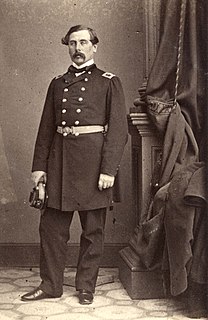A Quote by Richard M. Nixon
When I spoke at the St. Lawrence Seaway ceremonies in 1969, I borrowed some words from the monument there which I had joined Queen Elizabeth in dedicating just 10 years before. That monument, as its inscription puts it, 'bears witness to the common purpose of two nations whose frontiers are the frontiers of friendship, whose ways are the ways of freedom, whose works are the works of peace'.
Related Quotes
Genius, when employed in works whose tendency it is to demoralize and to degrade us, should be contemplated with abhorrence rather than with admiration; such a monument of its power, may indeed be stamped with immortality, but like the Coliseum at Rome, we deplore its magnificence because we detest the purposes for which it was designed.
Great ideas, it has been said, come into the world as gently as doves. Perhaps then, if we listen attentively, we shall hear amid the uproar of empires and nations, a faint flutter of wings, the gentle stirring of life and hope. Some will say that this hope lies in a nation; others in a man. I believe rather that it is awakened, revived, nourished, by millions of solitary individuals whose and works every day negate frontiers and the crudest implications of history.
When I have my interview with my God, our conversation will focus on the individuals whose self-esteem I was able to strengthen, whose faith I was able to reinforce, and whose discomfort I was able to assuage—a doer of good, regardless of what assignment I had. These are the metrics of that matter in measuring my life. This realization, which occurred nearly fifteen years ago, guided me every day to seek opportunities to help people in ways tailored to their individual circumstances. My happiness and my sense of worth has been immeasurably improved as a result.
Friends now fast sworn,
Whose double bosoms seems to wear one heart,
Whose hours, whose bed, whose meal and exercise
Are still together, who twin, as 'twere, in love,
Unseparable, shall within this hour,
On a dissension of a doit, break out
To bitterest enmity; so fellest foes,
Whose passions and whose plots have broke their sleep
To take the one the other, by some chance,
Some trick not worth an egg, shall grow dear friends
And interjoin their issues.
We are persons whose bodies can be objectively studied according to the impersonal laws of physics but whose minds are subjectively experienced in ways science has not yet been able to fathom. In short, by radically seperating science from religion, we are not merely segregating two human institutions; we are fragmenting ourselves as individuals and as a society in ways that lead to deep, unresolved conflicts in terms of our view of the world, our values, and our way of life.


































